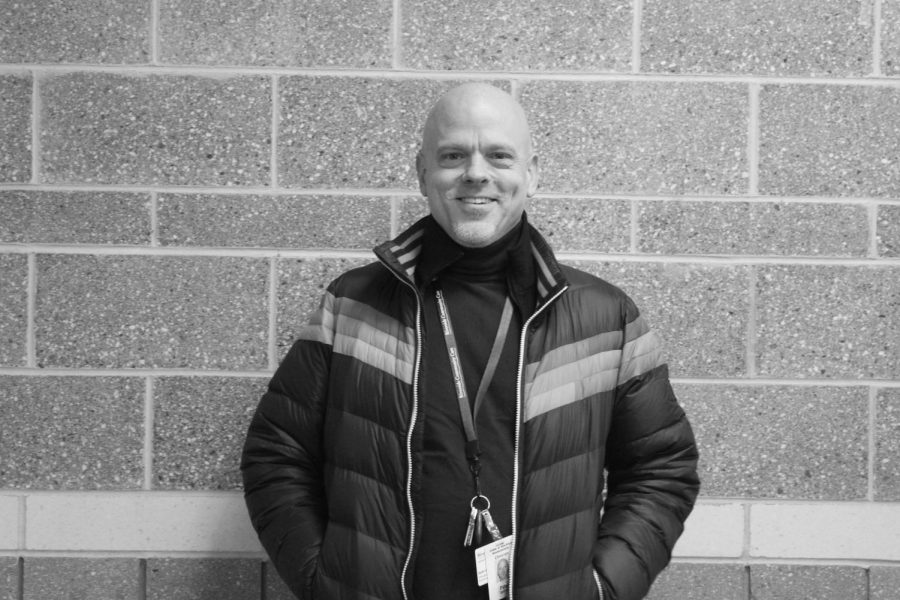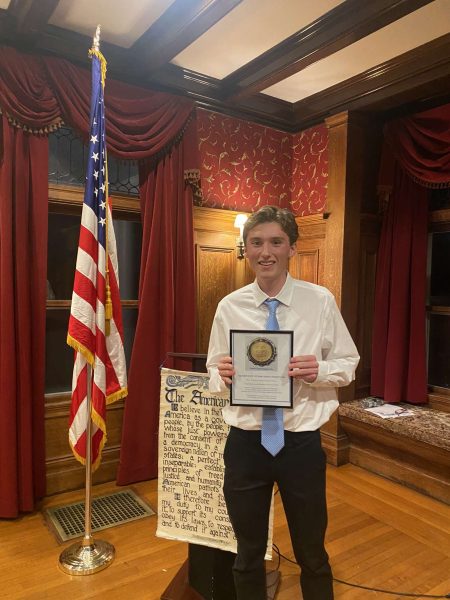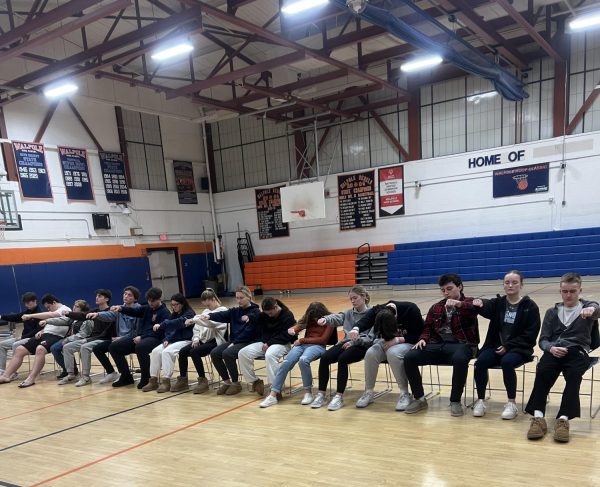WPD Welcomes Clinical Social Worker Dylan Jones
Jones fills news position as Law Enforcement Support Clinician.
This past February, the Walpole town police department (WPD) welcomed mental-health liaison and licensed clinical social worker Dylan Jones into their fold as a part of Massachusetts’ Jail Diversion Program (JDP). Considering that 25% of the world’s entire prison population resides within the United States–even though the states themselves only make up for 4.25% of the world’s entire population–many states have been adopting diversion against arrest programs to help decrease mass incarceration and overcrowding rates within the country.
Massachusetts’ program, the JDP, paired up the state’s Department of Mental Health with local law enforcement departments in order to place mental-health workers within departments to oversee any cases or calls requiring their expertise. The WPD is the latest town to benefit from this program, as Jones and his 20 years of experience in the mental health field were brought in as a resource to the division–fulfillment of a larger, national push for more mental health advocacy within government resources.
In 2005, Jones earned a master’s degree in Social Work from Simmons College, School of Social Work. Before deciding to earn this degree, however, he gained valuable experience as an outreach worker for the Justice Resource Institute in downtown Boston, helping with HIV prevention and substance-abuse intervention with youth. This experience, Jones claims, was a defining moment in his decision to pursue a career in social work.
“Choosing to become a social worker was less about mental health initially. It was more about wanting to do work that could be meaningful and profound, which I’d learned it could be through my experience as an outreach worker,” Jones said. “I knew social work would give me access to people and communities I might not otherwise be exposed to, and this would enrich my life and broaden my perspective.”
According to WBUR, a report done in 2022 by the Massachusetts Department of Public Health estimated that 7-10% of police calls involved someone undergoing a mental health crisis. Jones’ new position will allow for those dealing with these crises to be followed up with by someone with mental health training and expertise.
“Part of my job is forming relationships with individuals who come into contact with the police frequently. There are a handful of individuals I speak with or meet with in the community regularly who struggle with mental illness, and sometimes over-utilize the police for support,” Jones said. “As an extension of Riverside Community Care’s Mobile Crisis Intervention team, I will do mental health evaluations for people in the community who may be
experiencing a mental health crisis. One of the goals of these evaluations is to determine if a person
needs a ‘higher level of care.’”
At Walpole High School, there are many students interested in a variety of careers relating to mental health or community outreach, and Jones’ position as a Law Enforcement Support Clinician is just one possibility of a career that someone can pursue with specifically a degree in social work.
“A social work degree is very versatile–you can do a lot of different things with it: you can be a clinician, a therapist; you could become a program director; you could help develop policy,” Jones said. “If you want to be challenged, I say go for it. It can be incredibly rewarding, meaningful and interesting. It will open your eyes.”

Sophia Brownsword, Class of 2023, is co-Editor-in-Chief of The Searchlight. At Walpole High School, Sophia plays soccer and runs spring track, is the...
















